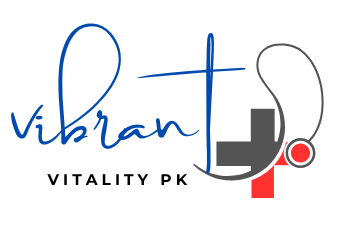Hormonal Imbalance Menace among Women: Restoring Balance through 20 Healthy Food Choices
Hormonal imbalance

Hormonal imbalance has significant impacts on overall health and wellbeing. Hormonal imbalance is characterized as a condition of scarcity or abundance of certain hormones. Hormonal imbalance is determined by lot of signs and symptoms varying from weight gain or weight loss. However, most of hormonal imbalance conditions are treatable. Meager hormonal imbalance may pose serious threats to overall wellbeing.

Hormonal imbalance may affect both genders i.e. males and females but this article will cover hormonal imbalance among females only. Approximately, 80% women confronts from hormonal imbalance in their life span.
World Health Organization (WHO) reports reveal that about 70% women remain untreated and their hormonal imbalance issues remain unaddressed worldwide. Around 8-13% child bearing age women confronts PCOS (Polycystic ovarian syndrome).
Hormones act as chemical messengers which are designed to perform certain bodily functions. They transmit via blood streams and reach muscles, skin and other body tissues. They are produced in endocrine glands. Hormones are extremely vital for survival and growth. Various scientists identified about 50 hormones till now in humans.
Hormones perform various functions like:
- Reproduction
- Moods
- Sleep and wake cycles
- Development and growth
- Sexual functions
- Homeostasis
- Metabolism functions
- Stress
What are hormonal imbalance symptoms in females?
Hormones levels may fluctuate among females in their life span owing to various reasons and may be in certain timings like during or before starting a menstruation cycle, while pregnancy or in menopause conditions. Hormonal imbalance among females is common in adrenaline, steroid hormone, growth hormone, estrogen or progesterone or insulin.
However, as far as hormonal imbalance symptoms are concerned they are as follows:
- Mood swings and behavioral tantrums
- Sweating in night
- Tachycardia
- Lack of interests in sexual activities
- Infertility
- Skin dryness or rash
- Sleep problems
- Appetite patterns changes
- Depression
- Constipation
- Diarrhea
- High levels of cholesterol
- Breast sores
- Moist, thin and warm skin
- Pulse rate variations
- Weight gain or loss
- Headache
- Swelling on face
- Concentration problems
- Bloating
- Inconsistent and frequent bowel movements or urine problems
- Neck bulges
- Loss of hairs
- Sweating
- Blood sugar levels variations
- Hair thinness
- Bone weakness
- Eyesight issues
- Clitoris enlargement
- Fatigue
- Heat and cold sensitiveness
What are hormonal imbalance causes?
There is a wide array of hormonal imbalance causes among females ranging from normal to predictable points of lifespan events like puberty, menstruation, menopause or pregnancy. There may be certain environmental factors, eating routines, life styles or medical problems which may cause hormonal imbalance. Endocrine glands malfunctioning may also be a reason of hormonal imbalance.
However, there are some hormonal imbalance causes below:
- Stress
- Obesity
- Hypothyroidism or hyperthyroidism
- Tumors in pituitary glands
- Unhealthy and fatty diets
- Diabetes
- Irregular menstrual cycles
- Body fats
- Genetically transmitted pancreatitis (pancreas inflammation)
- Prader-willi syndrome
- Endocrine gland injuries
- Allergic reactions
- Pesticides, pollutants, herbicides and toxins
- Anabolic steroid based medicines
- Presence of only one X chromosome (called as Turner syndrome which may also lead towards ovarian and heart problems)
- Medication
- Anorexia
- Hormonal acne
- Malfunctioning of thyroid glands
- Phytoestrogens
- Raised levels of insulin and glucagon.
- Little or too much parathyroid hormones
- Medicines intake about birth control
- Cysts or benign tumors
- Iodine deficiency
- Cortisol hormone abundance
- Cancers
- Chemotherapy
Furthermore, certain medical conditions like polycystic ovarian syndrome (PCOS), menopause, primary ovarian insufficiency (POI), ovarian cancers and birth control medicines also cause hormonal imbalance.
How to cure hormonal imbalance naturally?
Every disease requires certain level of precaution and cure. The awareness about certain remedies has long lasting impacts. The hormonal imbalance likewise has some routine and natural cures which are as follows:
- Enough sleep
Sleep regulates lot of bodily reactions. Calm, quite and undisturbed sleep has far reaching consequences. A study conducted in 2015 shows that sleep disturbances may leads towards appetite issues, stress and obesity.
- Avoid artificial lighting at night
A study conducted on sleep patterns reveal that using artificial lighting at night may disturb the brain and body and it suppresses the hormone called as melatonin which make the sleep difficulty and ultimately cause sleep disorders.
- Exercise
Routine and regular exercise also play pivotal role in hormonal balancing. Studies shows that regular exercise even for short period of time helps in minimizing threats of type 2 diabetes, obesity, metabolic syndromes and insulin resistances.
Exercise also expedites performance of hormones which control, regulate and manage appetite.
- Avoid excessive sugar intake
Some of the people avoid specific type of sugars from their diet plan however, abstaining from all sugar types is recommended. It helps in keeping insulin on a normal level. Honey, fructose and every other type of sugar should not be part of our daily meal. Apart from the fact of sugar based disease sugar is also bad for oral health as well.
- Stress Management
Researches reveal that stress is strongly correlated with endocrine system and levels of hormones. Stress always commences endocrine response. It is also observed through studies that higher levels of stress trigger hormones known as cortisol and adrenaline. Raised levels of these hormones disturb hormonal balance and ultimately lead towards more stress, obesity, cardiovascular problems and mood swings.
- Healthy Fats Consumption
Healthy fats control and regulate hormones relating to appetite and metabolism. Studies reveal that coconut oils and palm oils help in regulation of hormones dealing with insulin. Olive oils are also beneficial as it regulate appetite and helps in fat and protein digestion.
- Avoid overeating
Over eating is considered as a serious mental problem. It may cause obesity and exert pressure on the digestion system manifolds which ultimately disturb hormonal balance.
- Green tea
Green tea is considered important in balancing hormones and also facilitate in digestion due to antioxidants.
What are hormonal imbalance tests?
There is no single test to diagnose hormonal imbalance rather medical practitioner will rule out symptoms, ask about certain issues and condition then ma suggest any test for diagnosis like:
- Pelvic examination: It may reveal any cyst, tumor or any unnatural lump.
- Blood tests: Blood test will suggest certain hormonal levels.
- Ultrasound: Ovarian, uterus, pituitary and thyroid glands evaluation may also suggest certain inconsistencies.
- Other Test: MRI, X-rays and biopsy.
- Glucose/insulin tolerance tests
What is hormonal imbalance treatment?
As far as, the treatment of hormonal imbalance is concerned, it may vary person to person. However, there are certain treatment options which are as follows:
- Hormonal replacement medicines: Women may have to take medicines to overcome conditions of menopause which entails both night sweating and hot flash.
- Birth control/hormone control medicines: Such medicines can carry progesterone and estrogen which assist in management of menstrual cycles. It may include rings, pills, shots, patches or IUDs (Intrauterine devices).
- Vaginal estrogen: In order to reduce vaginal dryness certain creams (containing estrogen) may directly applied to vaginal tissues.
- Anti androgen medicines: It may help in minimizing acne and hair loss or growth.
- Metformin: It will help in balancing the blood sugar level.
- Reproductive Technology: IVF (In vitro fertilization) may also assist in pregnancies among women with PCOS.
- Clomiphene and letrozole: Injections may increase ovulation among women confronting from PCOS (Polycystic ovarian syndrome).
- Levothyroxine: This chemical present in medicines may reduce hypothyroidism symptoms.
How to prevent hormonal imbalance?
Certain life style changes may help in prevention against hormonal imbalance and its consequences which may include:
- Healthy body weight management.
- Exercise
- Balanced diet intake
- Stress management
- Meditations and yoga
- Regular washing
- Avoidance of junk, spicy and unhealthy food.
- Avoid toxic house cleaners.
- Avoid excess sugars and packed foods.
- Avoid beverages
- Cook in ceramic pans instead non sticks.
- Consume fruits and vegetables more.
- Visit medical practitioner in case of any symptom.
What food choices can restore hormonal imbalance?
Healthy dietary options not only render essential nutrients but also assist in restoration of hormonal imbalance. There are certain foods which may help in restoring hormonal balance such as:
- Chia seeds
- Lemon or amla shots
- Almonds
- Spinach
- Avocado
- Pumpkin seeds
- Banana
- Spirulina powder
- Salmon
- Yogurt and dairy products
- Pickled vegetables and fruits
- Cruciferous vegetables like cabbage, kale, broccoli, radish etc
- Olive oil
- Nut butter
- Animal or plant protein
- Berries
- Pears
- Herbs and spices like ginger, turmeric, paprika, garlic and sumac.
- Legumes
- Quinoa
Conclusion
Hormones play pivotal role in body functions, growth and development. Scarcity or abundance of any hormone may cause hormonal imbalance which may deteriorate overall functioning of the organs and pose serious health related threats.
Hormonal imbalance may be due to certain medications or other conditions like menopause, ovarian syndrome or due to tumors. Timely diagnosis and treatment may help in overcoming the menace of imbalance.
There are certain food options like fruits, vegetables and oils which may help in restoring healthy hormonal balance. One must avoid unhealthy junk foods, spicy dishes and alcohol drinks to remain healthy.
FAQs
What is hormonal imbalance?
Hormonal imbalance is characterized as a condition of scarcity or abundance of certain hormones.
What functions hormones play?
Hormones perform various functions like:
· Reproduction
· Moods
· Sleep and wake cycles
· Development and growth
· Sexual functions
· Homeostasis
· Metabolism functions
· Stress
What are hormonal imbalance symptoms in females?
Hormones levels may fluctuate among females in their life span owing to various reasons and may be in certain timings like during or before starting a menstruation cycle, while pregnancy or in menopause conditions. Hormonal imbalance among females is common in adrenaline, steroid hormone, growth hormone, estrogen or progesterone or insulin.






